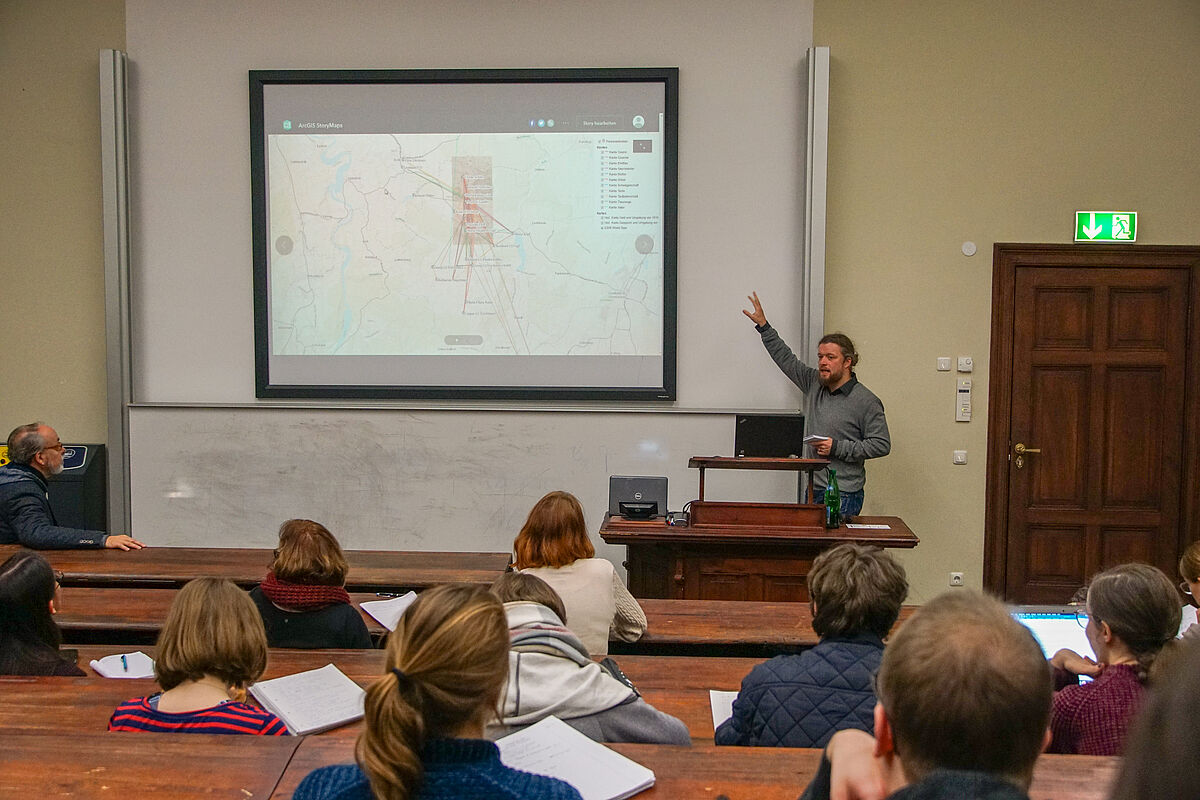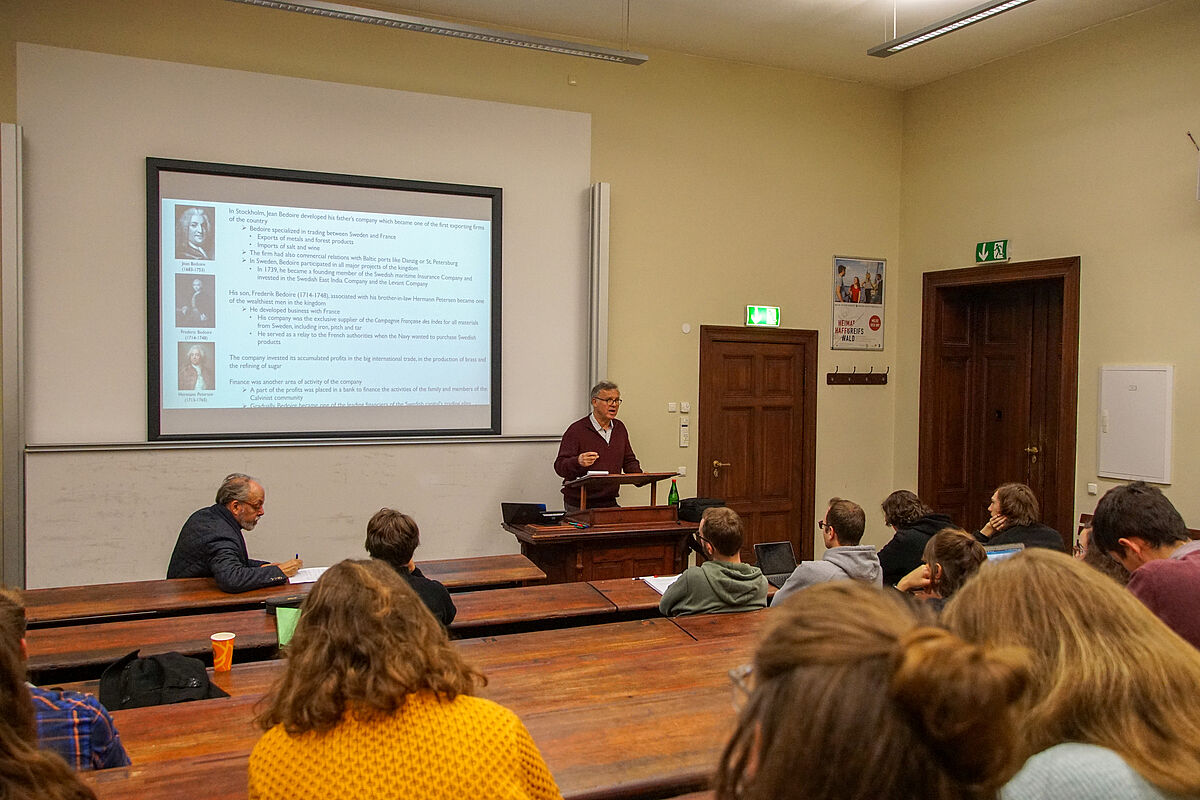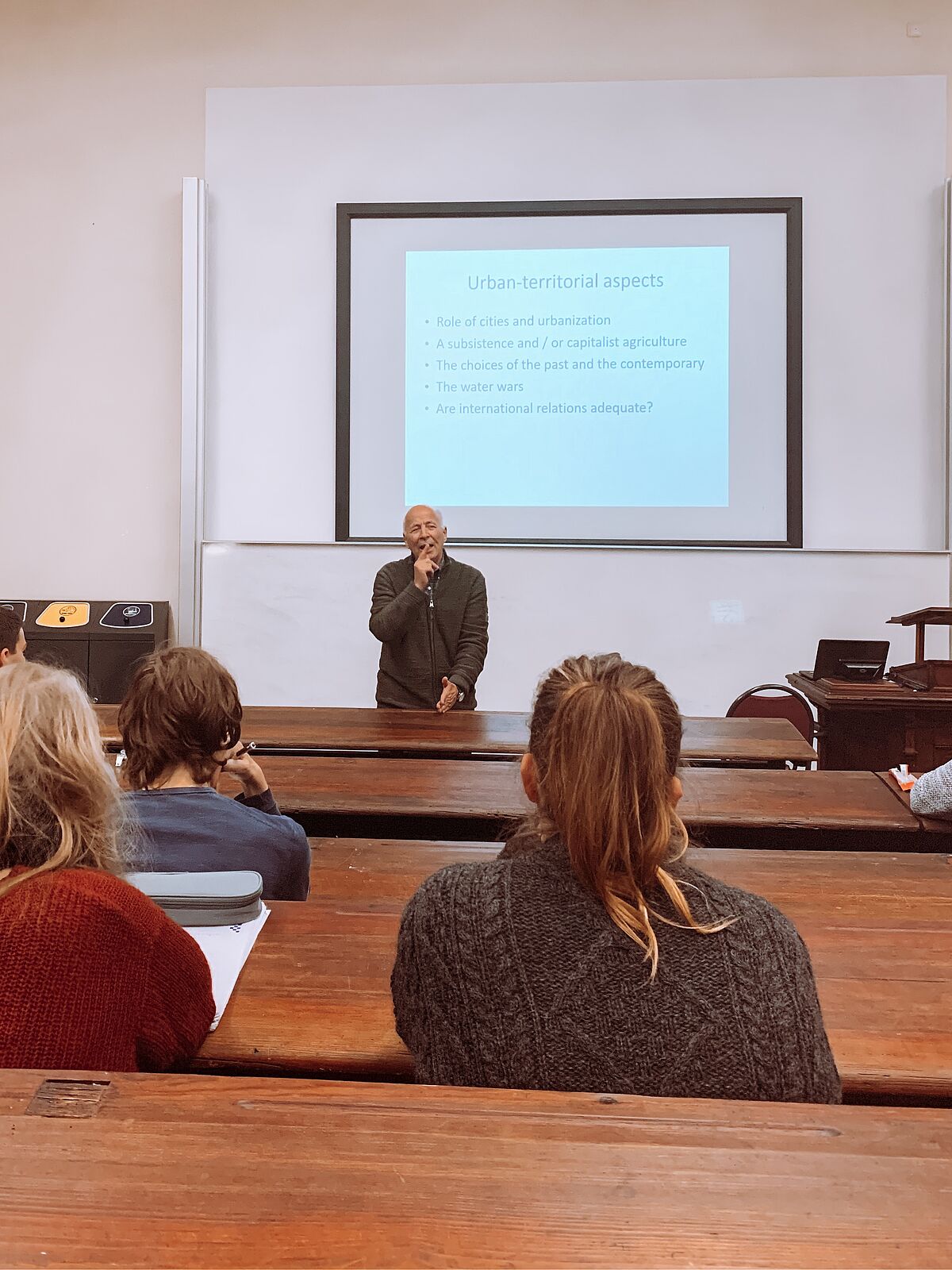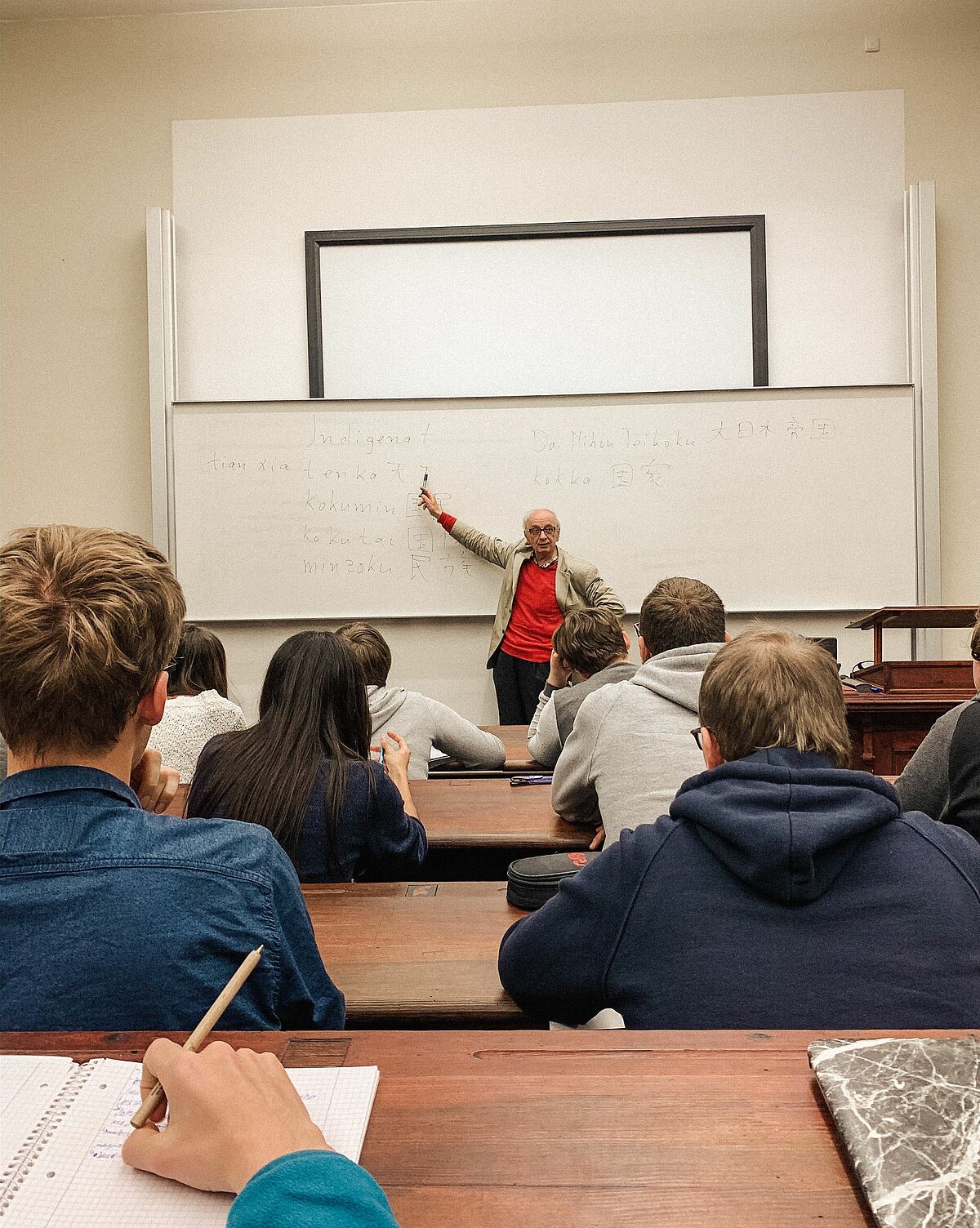Lectures
Oceans and seas connect the world. They not only transport goods and people but also their ideas. These range from ideas about the organisation of states and societies to innovations in the fields of energy and sustainability. Maritime spaces and perspectives offer manifold points of contact to investigate social and cultural phenomena. They are usually highly integrated and are characterised by specific cultures of exchange.
In the lecture series of the Interdisciplinary Research Centre Baltic Sea Region, international and Greifswald scientists present their research results on topics at, in and across the sea.
Lecture Series Winter 2020/21
Jan Körnert (Universität Greifswald) – Foreign-controlled banks in the Baltic banking systems: The evolution of their national market shares and potential implications for exercise of power in Europe
Online Guest Lecture
The lecture will take place online on 01.12. 2020.
Michelle Facos (Indiana University Bloomington) – Moving, Learning, Showing: the Circulation of Baltic Art and Artists in the Long 19th Century
Online Guest Lecture
The lecture will take place online on 08.12. 2020.
Tora Lane (Södertörn University Stockholm) – Platonov’s revolutionary anti-narrative of the revolution
Online Guest Lecture
The lecture will take place online on 15.12. 2020.
Lecture Series Winter 2019/20
Michael North (Greifswald) – Cultural and Artistic Exchanges in the Baltic Sea Region, 1400-1900
The lecture in the IFZO lecture series on the evening of 03 December 2019 was no guest lecture, yet not less interesting. Prof. Dr. Dr. h.c. Michael North, speaker of the IFZO, spoke about the Baltic Sea region as a contact zone, as a space for intercultural interactions and artistic exchange.
The Baltic Sea region was and is a zone of fruitful exchange relations. Different linguistic communities have lived together here since time immemorial: Germans, Slavs, Balts and Finns, who developed into peoples and states in the Middle Ages, but also partly in the modern age. At the same time, the Baltic Sea region was the scene of intensive exchange at all levels of social and cultural life. Supranational cultures such as those of the Vikings and the Slavs or the Hanseatic League, as well as the Dutchisation of the 16th and 17th centuries and the Sovietisation of the 20th century have shaped and continue to shape the Baltic Sea region. These diverse forms of cultural and economic interaction on and around the Baltic Sea are the focus of the lecture, which ranges from the Hanseatic period to the eve of the First World War.
Torsten Veit (Greifswald) – Form und Familie. Untersuchungen zu Wessobrunner Innendekorationen im Ostseeraum des 18. Jahrhunderts am Beispiel der frühen Jahren des oberbayrischen Stuckateurs Johann Michael Graff
Stucco plasterers are among the most mobile craftsmen in early modern times. They worked both in central residential towns and in remote country estates to create valuable interior decorations for their proprietors. The artists and craftsmen from Wessobrunn held a leading position in this field during the late 17th century and well into the 18th century.
Johann Michael Graff, the focus of my dissertation, comes from this small but important village in Upper Bavaria. Together with relatives he worked around 1760 in Berlin and from 1765 in Kurland, Livland and Poland. This creative period is well documented and verifiable by contracts and invoices.
In contrast, most of his early years are still in the dark. This is where the lecture begins. An attempt is made, by means of historical and spatial network research, to create hypotheses which suggest stylistic similarities to other stucco plasterers of the time, in order to locate Graff's work and that of his company in the cosmos of the Œuvres of Wessobrunner Stuckateure. In addition, new ways of visualizing art historical findings will be explored, documenting the research and generating a noticeable added value for the specialist community.
Pierrick Pourchasse (Brest) – The French Merchants Huguenots in Northern Europe in the 18th century
On 12 November 2019 Pierrick Pourchasse held his lecture on Huguenots in northern Europe within the IFZO lecture series.
The Huguenot was perceived as a deeply religious man, persecuted by the discriminatory measures and violence of the French authorities. He was a man who ran away from France with great difficulties, especially after the revocation of the Edict of Nantes and found refuge in countries where there was religious tolerance such as the Dutch Republic, England, Prussia or Scandinavia. If the representation of the persecuted migrant was close to the truth for many Protestants, the study of Huguenot merchants settled in Northern Europe gives another image of the Refuge. The Huguenots who settled in Hamburg, Stockholm or Copenhagen were not always refugees or native French. A number of them came from countries where their families had been established for several generations and where they were not persecuted, as Switzerland or the Dutch Republic. If they fled, it was also to create or develop a commercial activity like all other European merchants.
Salvatore Ciriacono (Padova) – Water: a Multidimensional Approach
On Tuesday 29 October, Salvatore Ciriacono, former Professor of Modern History at the University of Padua, gave a talk on water use as part of our lecture series. This lecture considered the relationship between water and the environment, broadly speaking. Such an investigation must take into account a wide range of variables, each of which needs to be articulated within its particular geographical and environmental contexts. The variables and problems connected to water are at once geographical and climatic, as well as technological, agronomic, and industrial. The issues extend also to the energy sector and the urban-territorial arena.
Formation, Adaptation, Response: Nationalism in Japan c. 1900. Critical Notes on ‘Transfer Nationalism’ – Harald Kleinschmidt (Tokyo)
On 22.10.2019 Prof. Harald Kleinschmidt spoke in the first guest lecture of the winter semester 2019/20 about Japanese nationalism at the beginning of the 20th century.
The presentation challenges the concept of ‘transfer nationalism’ suggesting that nationalism has emerged in areas outside Europe only through the transfer of its key ideas. This position, widely held in political sociology and modern history, stands in stark contrast against evidence provided by the history of nationalism in Japan which, from the turn of the nineteenth century at the latest, features tenets that can hardly have been of European origin. The core feature discussed at length in the article is the idea of tenka (天下; literally translated: all under heaven), constituting the group of ruled in terms of a universalistic indigenate (kokumin国民) , which allowed its expansion beyond the Japanese archipelago at government discretion. The concept of the universalistic indigenate, having been tied to the Confucian perception of the world as a well-ordered and change-absorbing entity, conflicted with the European concept of the nation as a particularistically conceived type of group, tied to the perception of the world as a dynamic and largely unruly entity. During the latter third of the nineteenth and the early twentieth century, some Japanese intellectuals came to appreciate the dynamism enshrined in the European concept of the nation and worked it into the established concept of the indigenate. The fusion produced a powerful ideology of colonial expansion targeted primarily at East and Southeast Asia as well as the South Pacific. By contrast, European, specifically military strategists and political theorists, unaware of the Japanese strategic conceptions, expected that solely Russia formed the target of Japanese military expansion.




